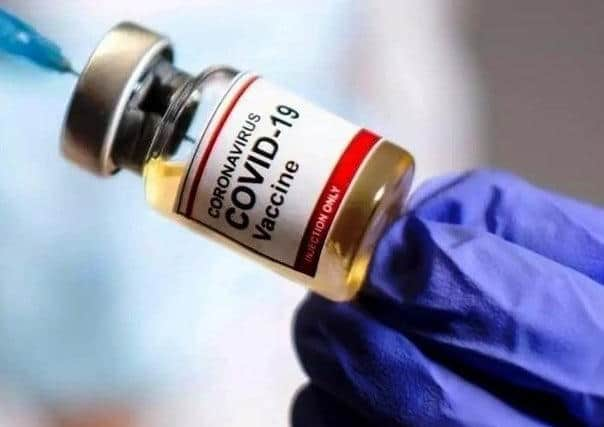AstraZeneca COVID-19 vaccine benefit far outweighs risk of blood clots says Derry GP Dr. Tom Black
and live on Freeview channel 276
Dr. Black, speaking to the ‘Journal’ yesterday, as the vaccination programme passed a major milestone by opening up to the 40 to 44 age cohort said people should come forward to be inoculated.
He said the report of clots among those who had had the AstraZeneca vaccine was about one in 250,000, although no definite link has been proven.
Advertisement
Hide AdAdvertisement
Hide Ad“We know that all vaccines have side effects but it’s all about balancing the benefit you get from it with any rare side effects. If an older person got a COVID-19 infection and they landed in hospital they would have a one in five chance of getting a clot so you can see there is a huge benefit from getting the vaccine and preventing COVID-19 infection with a very small risk,” said the Bogside based GP.


This week the British Medicines & Healthcare products Regulatory Agency revealed that by March 31, it had received 79 UK reports of blood clotting alongside low levels of platelets among those who had received the Oxford AstraZeneca vaccine.
The MHRA and the Joint Committee on Vaccination and Immunisation (JCVI) have both said the vaccine is safe but the latter has recommended people under 30 should be offered alternative vaccines.
Advertisement
Hide AdAdvertisement
Hide AdDr. Black said this made sense. “When you get down to the very young age group, the under-30s, the benefits aren’t so huge because they have much less risk of getting a serious infection and landing in hospital so I think the sensible thing to do is to be cautious.


"There isn’t a proven link yet between the AstraZeneca vaccine and clots. We are just being very careful and everybody under 30 is going to be offered an alternative vaccine such as a Moderna or Pfizer vaccine.”
Dr. Black reassured people who have received the AstraZeneca vaccine that the risk of side effects is extremely low.
Advertisement
Hide AdAdvertisement
Hide Ad“In the older age groups that have already had their AstraZeneca vaccine I think it is very sensible for them to go and get their second dose because that will give them the best immunity.
“There is still some infection about and there will be outbreaks probably later in the summer and the beginning of autumn so I think it is important everybody gets their full vaccinations.”
Dr. Black said he is encouraged by the downward trend in the infection and hospitalisation rates in Derry but believes they can decrease further.
“The infection rate overall in NI has decreased to 28.4 per 100,000 overall in the last week which is a low rate. It’s not as low as last summer when Derry got down to ten per 100,000,” he said.
Advertisement
Hide AdAdvertisement
Hide AdIn Derry the rate fell steadily through February and March before an unexpected uptick at the end of last month. This was likely due to a range of factors.
“Derry is now at 57.7 per 100,000 so we are the highest rate in NI. I think there are a number of factors: the recent St. Patrick’s Day and Mother’s Day occasions; there is the cross-border element and infections have been fairly high in Donegal as well.”
Notwithstanding these blips the Abbey GP believes a better summer is possible.
Advertisement
Hide AdAdvertisement
Hide Ad“Overall the rates are low, the admissions to hospitals are low, the pressure has certainly been taken off the health service.
“I think what we have to do is hold our nerve, keep pushing the rates down as best we can, and along with that and the vaccinations we should be able to start easing restrictions and getting back to something like normal life over the summer. That would be the hope.”
Dr. Black, however, says he does not believe a zero COVID-19 scenario is plausible.
Advertisement
Hide AdAdvertisement
Hide Ad“We are not going to get rid of COVID-19 completely. There will be no zero COVID-19 for the next two or three years but certainly we should be aiming for a near elimination strategy of about 10 cases per 100,000.
“That’s the thing to aim for,” he declared.
Comment Guidelines
National World encourages reader discussion on our stories. User feedback, insights and back-and-forth exchanges add a rich layer of context to reporting. Please review our Community Guidelines before commenting.